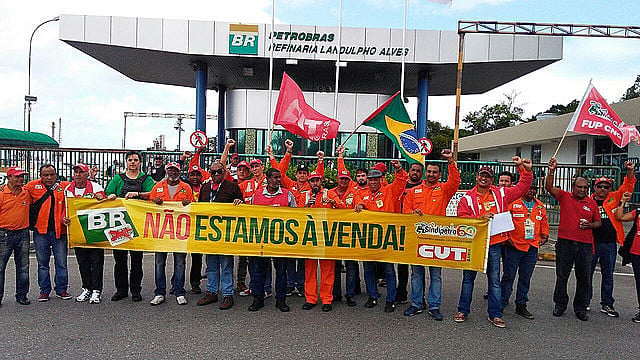As Brazil faces food and fuel shortages after truck drivers started to stage a nationwide strike last Monday, oil workers have announced a 72-hour warning walkout starting this Wednesday (30).
The Unified Federation of Oil Workers (Federação Única dos Petroleiros – FUP) released a statement explaining that “the warning strike is part of the efforts oil workers have been mobilizing to ultimately stage a nationwide strike for an indefinite period of time.”
The workers demand that the government reduces LP gas and fuel prices. Demonstrators are protesting against the privatization of Brazil’s state-owned oil company Petrobras and demand the immediate resignation of its president, Pedro Parente. The oil workers union says the current pricing policy for oil products adopted by Parente and approved by the country’s coup president Michel Temer has led to fuel price hikes over the last few years.
According to the federation, the number of importers selling oil product to the country has increased fourfold over the last two years, since Parente adopted a parity pricing policy, causing oil prices to fluctuate following the international market and “impacting Brazilian consumers so that corporations could profit.” The FUP also wrote that, in 2017, Brazil imported over 200 million barrels of oil, while Temer ordered the country’s refineries to operate at less than 70% capacity. “The Brazilian people will not pay for the dismantling” of Petrobras, the union federation stated.




